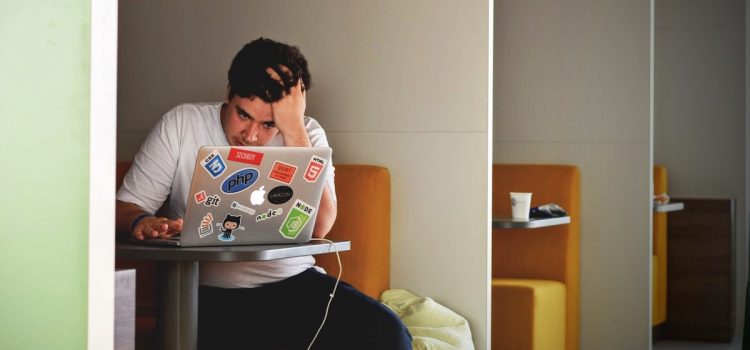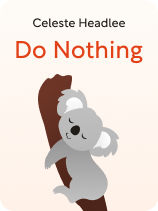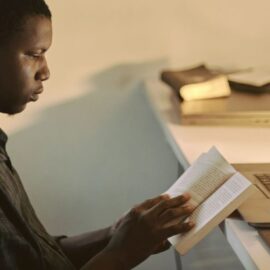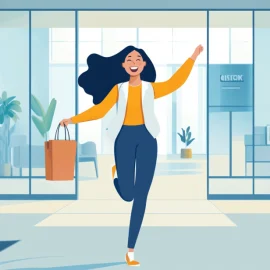

This article is an excerpt from the Shortform book guide to "Do Nothing" by Celeste Headlee. Shortform has the world's best summaries and analyses of books you should be reading.
Like this article? Sign up for a free trial here.
How much work is too much? Does multitasking increase productivity or lower it? Might you be addicted to technology just a little bit?
In Do Nothing, radio journalist Celeste Headlee argues that, by trying to do too much, people are working less efficiently. This is because the human brain isn’t designed to multitask or work without rest. Also, the productivity culture has led to worse health outcomes and increased social isolation.
Keep reading to understand the three negative effects of overworking that Headlee identifies.
The Negative Effects of Overworking
Headlee explains how working too much becomes counterproductive in many ways. She argues that the work-obsessed culture has led to lower efficiency, worse mental and physical health, and an unhealthful addiction to technology. Let’s take a look at each of these negative effects of overworking.
#1: Lower Efficiency
One of the main ways people try to fit more into the day is by multitasking—for example, responding to emails and text messages as they come in while also working on writing a report and scrolling through social media. Yet, Headlee says that, instead of getting more done at once, people take more time to do each task than it would take if they focused on one thing at a time. This is because, despite our best efforts, the human brain isn’t capable of multitasking. Instead, we take extra time constantly switching between different tasks.
(Shortform note: In The One Thing, Gary Keller explains that task-switching itself can become addictive because you get a little jolt of dopamine—a feel-good brain chemical—each time you shift your attention toward a new task. In addition to the decreased efficiency in work contexts that Headlee points out, Keller notes that multitasking in social situations can erode your personal relationships, and multitasking while driving can be extremely dangerous. His key advice to counteract the downsides of multitasking is to focus on doing the one thing that matters most at a given moment. For example, if you’re hanging out with friends, focus on enjoying quality time with them rather than glancing at phone notifications.)
In addition to trying to multitask, people often work long hours, thinking they’ll get more accomplished or impress their boss by showing how hard they work. However, Headlee says that although many companies measure productivity by work hours, research shows that people work more efficiently when they work fewer hours and take frequent breaks. This is because people can only do about an hour of focused work at a time on average.
(Shortform note: Some experts suggest that the number of productive work hours you can put in also depends on the type of work you do. One article asserts that if you’re doing more repetitive work, your productivity maxes out at 40 hours per week, but if you’re doing creative work, it tops out at 20 hours per week. This suggests that even with breaks, there are limits to the amount of work you can do before there are diminishing returns on your effort. To account for the counterintuitive relationship between work hours and productivity, some experts suggest measuring employee productivity based on things like objectives achieved in a given time period.)
And, Headlee adds, we tend to make a task length stretch to the amount of time available to do it. Therefore, working long hours can lead to inefficiencies like taking a whole workday to complete a task that could have been done in a few hours (with breaks in between) if given a strict stopping point. (Shortform note: Research also suggests that setting challenging time parameters for your work improves efficiency because it causes physiological arousal (such as an increased heart rate) that motivates a boost in effort. However, too much stress around the time constraint can backfire and cause a decline in productivity.)
#2: Worse Mental & Physical Health
Although many people state that they enjoy work or they feel better when they’re being productive, Headlee counters that this is partly due to the cultural conditioning that shames people into working hard, when the reality is that overworking has a negative impact on people’s mental and physical health. (Shortform note: Some experts posit that being passionate about your work and enjoying your work make you more susceptible to burnout (mental and physical exhaustion). This is because you’re more likely to think that you can and should be working all the time—you rationalize that it doesn’t really feel like work and that the output is meaningful to you. Many studies suggest that regardless of your motivations to work hard, you can overdo it.)
Headlee cites research that says that half of all visits to the doctor in the US are linked to stress-related health problems, and Headlee attributes this trend to the rise in work and productivity-related stress. Research indicates that feeling stressed about not having enough time can lead to insomnia, anxiety, lower levels of happiness, and obesity. In contrast, companies that reduce work hours tend to maintain productivity while improving the emotional and physical health of their employees.
(Shortform note: Rather than focusing on working less due to the link between work stress and poor health, some researchers point to ways we can improve jobs to make them less conducive to stress-related illness. For example, experts assert that jobs support employees’ well-being when workers have agency over their decisions, can develop and use new skills, and work in a supportive and respectful environment. Therefore, managing both the quality and quantity of work might be an effective approach to improving your health.)
#3: Unhealthful Technology Usage
Another downside of prioritizing productivity above all else is that it tends to make technologies that enable productivity—like smartphones—an integral part of people’s day-to-day lives. Headlee argues that this, in turn, has a slew of negative consequences.
One major impact of the frequent use of technology is that it allows work to seep into people’s personal lives when they’re off the clock. Smartphones and laptops enable people to stay connected 24/7, and as a result, there’s more pressure to respond to work emails and phone calls even when someone is meant to be enjoying time off. This means that there’s less separation between on-the-job time and off-time, and many people feel like they can never fully relax.
Another impact of the constant use of technology is that it interferes with sleep patterns because the blue light emitted from screens tricks your brain into thinking that it’s daytime (and therefore time to be alert). This hinders the release of the hormone melatonin, which helps you sleep.
In addition, Headlee says that digital device notifications stimulate a physiological fight-or-flight response, which releases stress hormones. Simply having your smartphone near you, and therefore having the possibility of receiving a notification, can distract you from being present.
Lastly, Headlee writes that the frequent use of social media is (ironically) causing social isolation. Instead of having deeper relationships with a smaller circle of friends, people are replacing those relationships with an overwhelming number of superficial, digital connections. Headlee says that a person’s social media network tends to include too many people to genuinely empathize and keep in contact with. In addition, the digital interactions are less intimate than in-person and vocal interactions, so the countless digital exchanges that people have daily are less emotionally gratifying.

———End of Preview———
Like what you just read? Read the rest of the world's best book summary and analysis of Celeste Headlee's "Do Nothing" at Shortform.
Here's what you'll find in our full Do Nothing summary:
- How our fast-paced world is causing us to work less efficiently
- How the culture of overworking has led to social isolation and poor health
- How to embrace true leisure to live a happier and healthier life






